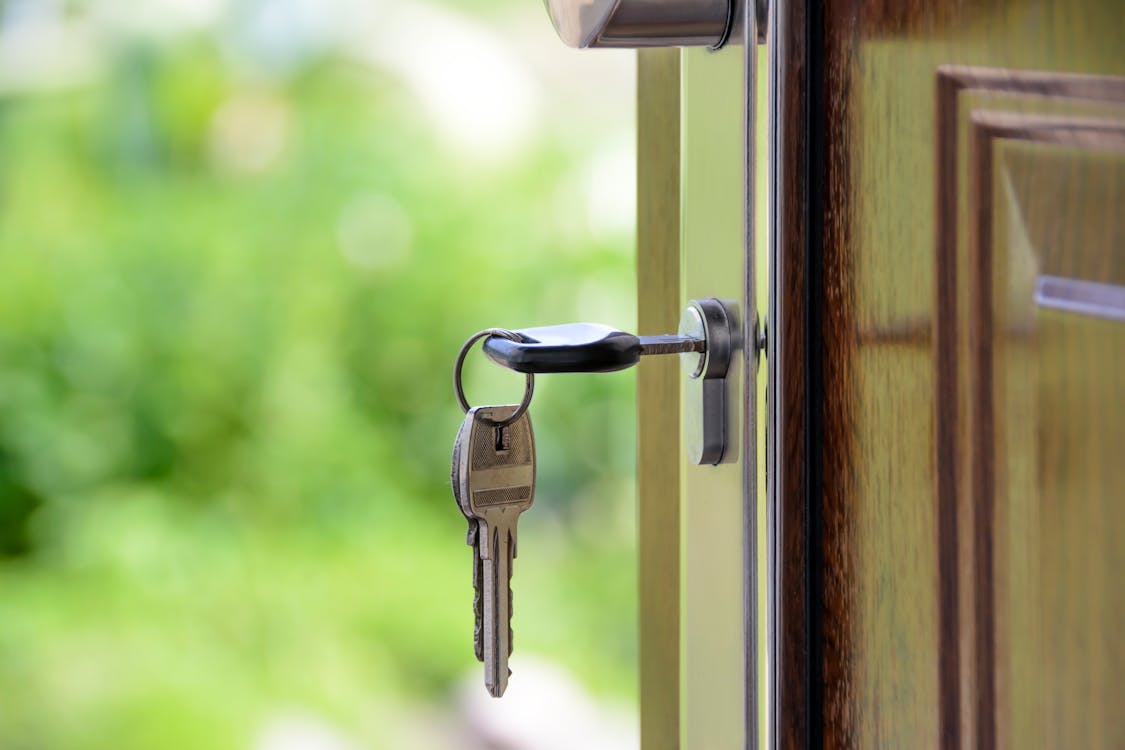How It Feels To Have OCD (First-Person Perspective)

Hey, Psych2Goers! There are a lot of common misconceptions out there about OCD. For instance, having OCD is often misconstrued as also being a perfectionist. It’s not. You can be a perfectionist who happens to have OCD. This is true. But those two things aren’t mutually inclusive. The acronym stands for “Obsessive Compulsive Disorder.”
A lot of people often get hung up on the “obsessive” part, which is where the perfectionism comparisons likely stem from. The key word that should be focused on is “compulsive”. The act of compulsion means “repetitive behaviours that a person with OCD feels the urge to do in response to an obsessive thought”.
Do you have OCD? What about your friends and family? If you don’t have OCD, you may be wondering what it’s like for someone who does have it. Outside of what movies and TV shows have probably already told you.
Here is “How It Feels To Have OCD (First Person Perspective).”
Disclaimer: This post is for educational purposes and is based on personal opinions. This post is not a substitute for professional advice, but general guidance. We advise you to always listen to your intuition and always do what is right for you.
#1 Arranging

There’s nothing inherently wrong with liking organization. Keeping a clean living space is something that many people can consider to be a standard way of living. If you’re obsessed with arranging things with very mannered detail though, you may have OCD. We all like having our bowls and plates neatly stacked in the kitchen cupboards.
But are you someone who has a very specific order to the way in which they’re stacked? Do they go by size? Colour-coordination? Or both? Do you get frustrated when others don’t follow your system and just toss them in all willy-nilly?
If you’re out having breakfast, do you arrange all of your coffee creamers in a perfect row? Is each one spaced exactly apart? Are the used sugar packets stacked on top of each other, but adjusted ever so-slightly so as to be flush together? Do these acts make you flush with embarrassment?
It’s possible that people may think you’re being, “odd”, “quirky”, “eccentric” or “downright weird.” There’s nothing wrong with you. You just like things in a very particular way. Arranging with OCD is a structured way you can keep organized through the chaos. The OCD urge is telling us to arrange something in the exact order, but if we try to ignore it or push it away, the feeling/ urge not only persists, but it gets stronger and more repetitive.
#2 Checking

You unplug your toaster after you’re done using it… just to be safe. But it isn’t enough. That nagging voice in your head convinces you that the toaster is UNPLUGGED, and yet, it’s going to start a fire anyway. “Pfft… No, it’s not! Don’t be silly.” You argue back. “But what if it does?” The voice insists. It keeps on repeatedly reminding you of the disturbing mental images and thoughts that your house will burn down.
The voice persists. “Oh, what about that dear cat you love so much? What if they get severely burned and die because of the fire? If this happens, it’s going to be all your fault. You wouldn’t want that to happen, would you?”. You end up checking ten more times to ensure it didn’t somehow magically plug itself back in… OCD is a brutal force against your own logic. If you unplugged the toaster from the wall socket, knowing that fact may not be enough.
OCD can be particularly dispiriting when you live in a really tiny apartment. Is your bed near the radiator, because it can’t fit anywhere else? Your OCD may make you check over and over again that none of the pillows are touching your place’s primary heat source. You might readjust those pillows. A lot. Checking the pillows five or six times so they don’t catch fire and destroy your apartment can be very tough to deal with. You’re not alone.
Once you finally make it out of your apartment, you still have to lock the door. You may put the key in the lock and take it out multiple times for fear that it’ll break off inside the mechanism. Once you manage to turn the lock-bolt on the door, you may still have to check that the door is indeed locked. Even though you know you locked it. How many times do you turn the handle to ensure this is true? Do you feel self-conscious, thinking that your neighbours can hear you triple-checking that the previously locked door is still locked?
#3 Excessive List-Making

Perhaps one of the least well known facets of OCD is excessive-list making. Like with arranging and organizing, making lists can help feel like you’re in control. Especially when so much of your day feels out of control. Now it’s normal to make all sorts of To-Do lists. Lots of us do it. It can be very satisfying when you cross things off that you’ve accomplished.
Are you in the middle of a very intense school semester? Writing down all of your projects that need finishing can certainly help with that. The excessive part with OCD comes when you start structuring a full 24 hours around these lists. Do you write out your entire day by every single hour? Do you get flustered if you can’t keep up with such an exacting schedule? OCD can even bleed into activities that should be viewed as fun and relaxing.
Say you watch at least ten different TV shows during the week. Do you make a list of each show per day and add the number of episodes you’re behind on? Does falling behind on these shows stress you out? Do you actually enjoy watching the shows? Or are you just happy to remove an episode from your watchlist, just so what’s left doesn’t look and/or feel so overwhelming?
#4 Counting

This one can seem much less intrusive and aggressive as previous points on this list. When you’re scanning grocery items at the self-checkout, do you count each and every single one? Do you return an item because otherwise you’d have an odd number? Do you count the steps taken from your home to the bus stop to get there? This counting can be done out loud, or in your head. If you’re embarrassed by the audible counting, you may be more likely to count silently in front of others.
If you’re struggling to get work done at the office, your OCD may cause some procrastination. Counting may occur more frequently when you’re bored. A la, looking up and counting all of the ceiling tiles. Wait. Did you miscount? Gotta start all over again.
#5 Washing & Cleaning

How often do you wash your hands? If you struggle with OCD, you may wash your hands. A lot. After drying them off, do you stop when you touching the bathroom doorknob? Is it clean? You may take a cloth and wipe down the doorknob. But then you have to clean the cloth. With OCD, you’ll scrub the cloth until you’re sure it’s free of any possible parasites and contaminants.
The scrubbing of the cloth can so aggressive, you may rip a hole in it. Thus making you throw out said cloth. Tossing the cloth out will likely bring you into contact with the garbage underneath the sink. So now you have to wash your hands. Again. Sigh. If you wash your hands super aggressively because of the compulsion, they may start bleeding. This was perfectly demonstrated by Leonardo DiCaprio as Howard Hughes in The Aviator (2004).
Imagine taking a shower, drying yourself off and then immediately getting back into the shower to wash yourself off again, because you thought the towel was now dirty. This cleaning can also extend itself to spills. Coffee rings are the worst. Coasters are your friend. So long as the mug is placed in the exact middle part of the coaster.
Final Thoughts
OCD can be a very different experience for everyone. Some people have more intense compulsions than others. It can arise and be a byproduct from a PTDS experience, for example. Some thoughts and actions can be more debilitating than others. Bear in mind that not all symptoms of the disorder were mentioned. This post is just the perspective of one particular person.
Did you recognize any of the signs listed here? In yourself? Or someone you know? If you know someone who may be challenged by OCD, perhaps talking to them about it would give you a better understanding. Being a sympathetic ear to someone who struggles with the disorder, can possibly help them process through some of their own troubles.
Having people understand your OCD struggle can help you feel less alone. At least this writer thinks so.
Until next time!
References:
‘How Do I Know If I Have OCD’ by Danny Bonvissuto, Smitha Bhandari, MD (April 1st, 2022) https://www.webmd.com/mental-health/understanding-obsessive-compulsive-disorder-symptoms
‘The Aviator – Hand Washing Scene’ https://www.youtube.com/watch?v=FK827IJqNXQ



Responses